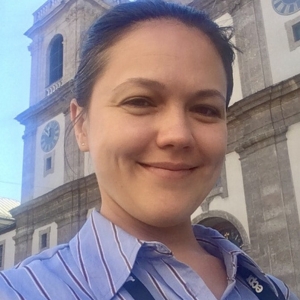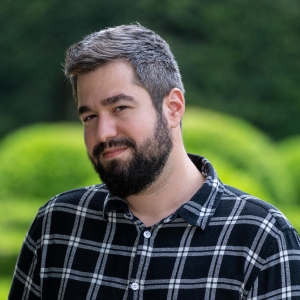Install the app
Install this application on your home screen for quick and easy access when you’re on the go.
Just tap then “Add to Home Screen”
Install this application on your home screen for quick and easy access when you’re on the go.
Just tap then “Add to Home Screen”
Install this application on your home screen for quick and easy access when you’re on the go.
Just tap then “Add to Home Screen”
We are excited to reveal the recipients of our two Methods School prizes which recognise pedagogical achievements among the Instructors and Teaching Assistants across our summer and winter training programmes.
Our Methods School presents an all-encompassing curriculum of advanced training in qualitative and quantitative research methods, catering to social science scholars of all levels and career stages
The Cora Maas Award celebrates the Instructor of the best-evaluated course across summer and winter programmes. For 2022, it has been awarded to Frederic Charles Schaffer for his course Working with Concepts.
The Dirk Berg-Schlosser Award, meanwhile, honours scholars who excelled in their role as Teaching Assistants at our Methods School. For 2022, it has been awarded jointly to Alina Isakova for her work on the courses Qualitative Data Analysis and Advanced Qualitative Data Analysis taught by Marie-Hélène Paré, and Daniel Kovarek for his work on Introduction to R taught by Akos Mate and Applied Regression Analysis: Estimation, Diagnostics, and Modelling taught by Alexandru Moise and Michael Dorsch.
The award winners were determined by the outcome of the evaluation surveys carried out after our 2022 winter and summer Methods School events.
Our Training Subcommittee, which oversees the award of these prizes, extends its sincere congratulations on behalf of the ECPR community.
Save the date
Great news, our Methods School winter programme is returning to KU Leuven from 3 – 9 February 2024! Course list coming soon.
 Frederic Charles Schaffer is a Professor in the Critical Political Studies division of the Political Science Department at the University of Massachusetts Amherst. His research examines the meaning and practice of democracy across cultures and back in time. His methodological writings develop language-centred approaches to foundational research tasks like comparing, interviewing, and working with concepts.
Frederic Charles Schaffer is a Professor in the Critical Political Studies division of the Political Science Department at the University of Massachusetts Amherst. His research examines the meaning and practice of democracy across cultures and back in time. His methodological writings develop language-centred approaches to foundational research tasks like comparing, interviewing, and working with concepts.
He is the author of Elucidating Social Science Concepts: An Interpretivist Guide (2016), The Hidden Costs of Clean Election Reform (2008), and Democracy in Translation: Understanding Politics in an Unfamiliar Culture (1998). He also edited Elections for Sale: The Causes and Consequences of Vote Buying (2007). His most recent methodological writings include Two Ways to Compare in Rethinking Comparison: Innovative Methods for Qualitative Political Inquiry (2021) and What is Interpretivist Interviewing? in The Oxford Handbook of Methodological Pluralism in Political Science (forthcoming).
He is the past Chair of both the Interpretive Methodologies and Methods Group of the American Political Science Association (APSA) and the Committee on Concepts and Methods of the International Political Science Association (IPSA).
'I’m honoured to receive this award. It’s especially meaningful to me because Working with Concepts is a course I’m passionate about teaching. Concepts are an essential but too-often overlooked dimension of research design and I love helping course participants cultivate their conceptual skills and develop robust conceptual frameworks for their projects.'
 Alina Isakova is a PhD candidate and a Doctoral Researcher with the Research Training Group World Politics at Bielefeld University. Her dissertation focuses on inter-organisational cooperation in conflict early warning and response from the 1990s through to 2022. Her fieldwork has recently brought her to Prague (the OSCE Researcher-in-Residence Programme), Brussels, Bishkek, and Addis Ababa.
Alina Isakova is a PhD candidate and a Doctoral Researcher with the Research Training Group World Politics at Bielefeld University. Her dissertation focuses on inter-organisational cooperation in conflict early warning and response from the 1990s through to 2022. Her fieldwork has recently brought her to Prague (the OSCE Researcher-in-Residence Programme), Brussels, Bishkek, and Addis Ababa.
Alina received her Master’s degree from Charles University. She was previously an International Relations Lecturer at the Kyrgyz National University and worked on donor-funded projects in Bishkek, Kyrgyzstan.
Alina’s research interests include the construction of global governance, IOs and NGOs, inter-organisational relations, as well as conflict prevention, migration, and social integration.
 Daniel Kovarek is a postdoctoral research fellow at the European University Institute in Florence and holds a PhD in Political Science from Central European University, Vienna. He specialises in the intersection of political behaviour, political geography, and distributive politics. In his current position, Daniel studies the policy-making processes in various crises of the European Union, using survey experiments and text-as-data methods.
Daniel Kovarek is a postdoctoral research fellow at the European University Institute in Florence and holds a PhD in Political Science from Central European University, Vienna. He specialises in the intersection of political behaviour, political geography, and distributive politics. In his current position, Daniel studies the policy-making processes in various crises of the European Union, using survey experiments and text-as-data methods.
Daniel has been teaching a wide variety of graduate-level courses on quantitative methods, applied statistics, programming, research design, as well as comparative politics. His work has been published in Research & Politics, The ANNALS of the American Academy of Political and Social Science and Environmental Politics, among others.
His most recent publication is Masking the Strangulation of Opposition Parties as Pandemic Response: Austerity Measures Targeting the Local Level in Hungary in the Cambridge Journal of Regions, Economy and Society (2023).
'I very much appreciate receiving the Dirk-Berg Schlosser Award and especially the attention it draws to the role of teaching assistants at the ECPR Methods School.
For me, it has been super-exciting to share the students’ journey towards mastering qualitative data analysis, and to be constantly inspired by the excellent work that Marie-Hélène does as an instructor making QDA count in the research methods universe.'
'I am deeply honoured to receive the Dirk Berg-Schlosser award. As I have been a Teaching Assistant for various ECPR Methods Schools courses for many years, it feels great that Instructors and students alike found my presence helpful. It is always rewarding to see our students writing their own code, running their own analyses, and collecting their novel data just months after taking a course with us.
Personally knowing some of the past recipients of the prize, who are some of the finest young scholars and most talented pedagogues I have ever met, makes me really appreciate this award.'
ECPR may receive a commission from the Amazon Services LLC Associates Program for qualifying purchases made through the product links on our website.
Keywords: Methods, Qualitative, Quantitative, Mixed Methods